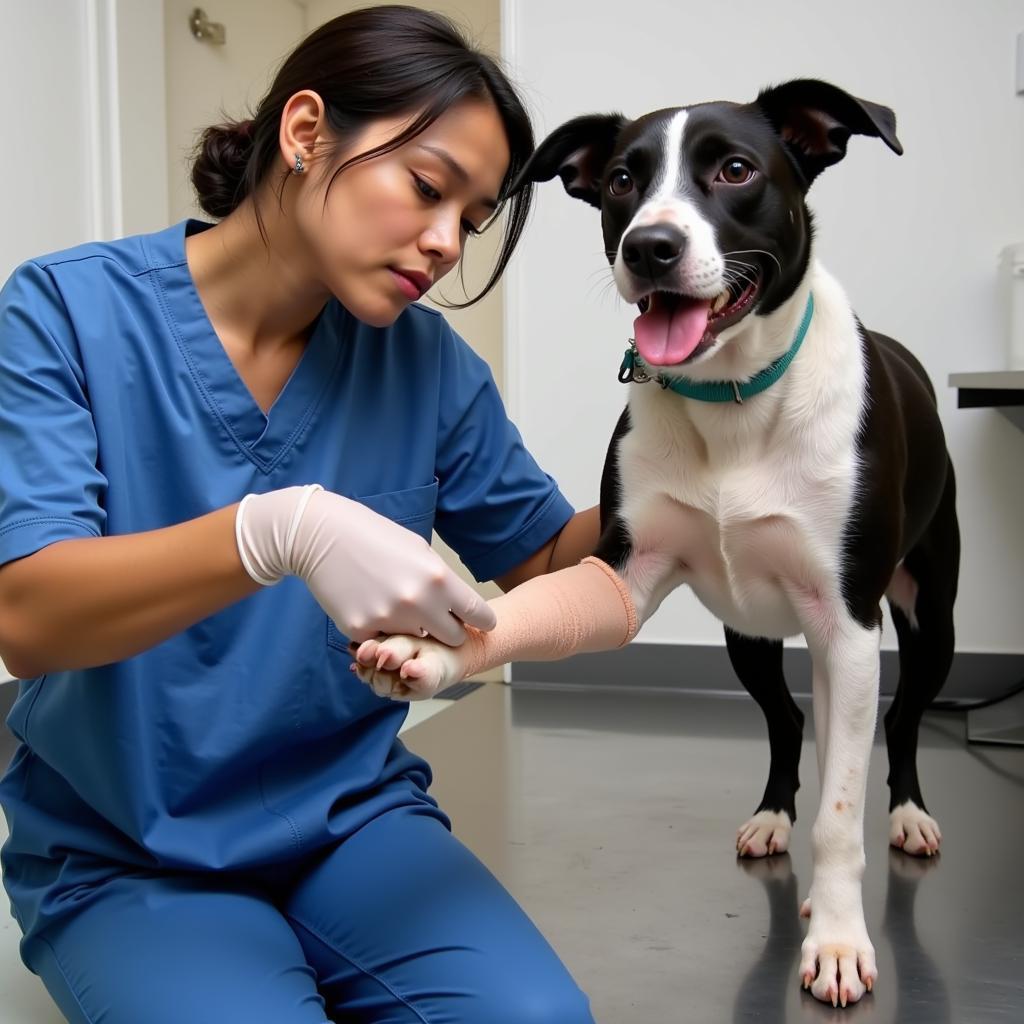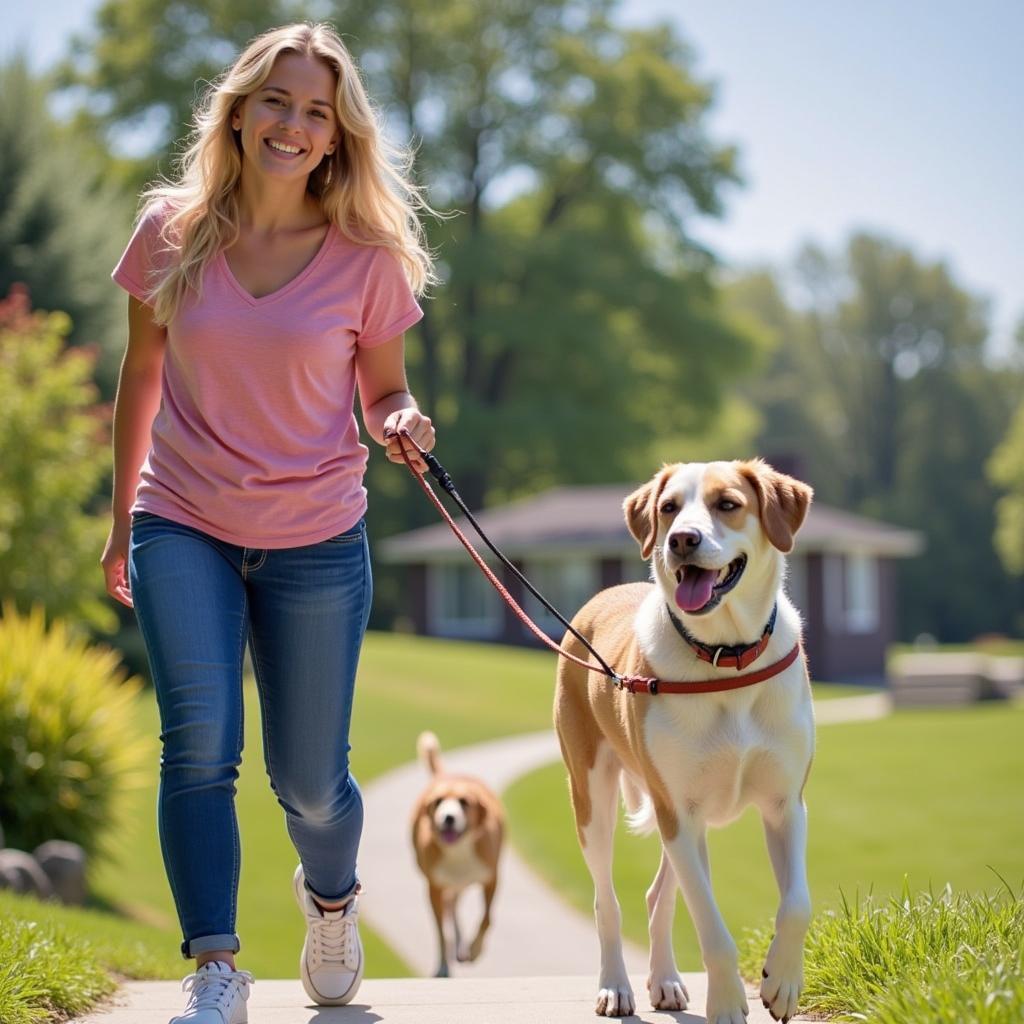The question “Do The Humane Society Kill Animals?” is a common one, often fueled by misinformation and emotional responses. Understanding the realities of animal shelters, including those affiliated with the Humane Society of the United States (HSUS), requires a deeper look into their operations, challenges, and commitment to animal welfare.
Understanding the Role of Humane Societies
Humane Societies across the country operate independently, each facing unique challenges based on their local community’s needs. While the HSUS provides guidance and resources, it doesn’t directly control individual shelters’ day-to-day operations. These shelters strive to find loving homes for every animal, but the unfortunate reality is that euthanasia sometimes becomes a necessary, albeit heartbreaking, last resort.
One crucial factor influencing euthanasia rates is the sheer volume of animals entering shelters. Stray animals, owner surrenders, and animals seized from neglectful or abusive situations all contribute to overcrowding. This influx puts a strain on resources, including space, staffing, and funding, making it challenging to provide optimal care for every animal.
Why Euthanasia is Sometimes Necessary
While the goal is always adoption, several factors can lead to the difficult decision of euthanasia. Animals with severe medical conditions, untreatable injuries, or behavioral issues that pose a danger to the public or other animals may be humanely euthanized to alleviate suffering.
 A veterinarian examining an injured animal at a humane society.
A veterinarian examining an injured animal at a humane society.
Furthermore, resource limitations can play a role. Overcrowding forces shelters to make difficult choices, prioritizing animals with the highest chances of adoption or those requiring immediate medical attention. This heart-wrenching reality underscores the importance of responsible pet ownership, spay/neuter programs, and community support for local shelters. You can find more information about responsible pet ownership at the Jupiter Humane Society.
The “No-Kill” Shelter Model
The term “no-kill” often evokes positive connotations, but it’s important to understand its nuances. A “no-kill” shelter aims to save a high percentage of animals, often 90% or more. However, even these shelters may euthanize animals deemed irremediably suffering or presenting a significant danger. The Humane Society of Westmoreland County PA provides valuable insights into their programs and services.
How You Can Help Reduce Euthanasia Rates
Addressing the complex issue of euthanasia in animal shelters requires a multi-faceted approach. Adopting rather than buying pets from breeders is a significant step. Supporting local shelters through donations, volunteering, or fostering animals also makes a difference. Promoting spay/neuter initiatives in your community can help control pet overpopulation, directly impacting shelter intake numbers.
 A volunteer walking a shelter dog.
A volunteer walking a shelter dog.
“Prevention is key,” says Dr. Emily Carter, a veterinarian with over 15 years of experience working with animal shelters. “By focusing on responsible pet ownership and community-wide spay/neuter programs, we can significantly reduce the number of animals entering shelters in the first place.” Another expert, animal behaviorist Sarah Johnson adds, “Addressing behavioral issues early on can also increase an animal’s adoptability, reducing the likelihood of euthanasia.”
The question, “do the humane society kill animals?” needs a nuanced answer. While euthanasia is a reality, understanding the factors behind it empowers us to take action. By supporting our local shelters and promoting responsible pet ownership, we can work towards a future where every animal has a loving home. For more information, visit does humane society kill animals. Understanding local resources is also helpful; you can find information on the humane society carroll county md and the humane society harford county.
FAQ
- What is the Humane Society’s stance on euthanasia?
- How can I support my local animal shelter?
- What are the benefits of adopting a pet?
- How can I find low-cost spay/neuter services in my area?
- What should I do if I find a stray animal?
- How can I help control pet overpopulation?
- What are the different types of animal shelters?
Do you have other questions or concerns? We encourage you to explore other helpful resources available on our website.
When you need support, please contact us at Phone Number: 02043854663, Email: [email protected] or visit us at Address: Khu 34, Bac Giang, 260000, Vietnam. We have a 24/7 customer service team.